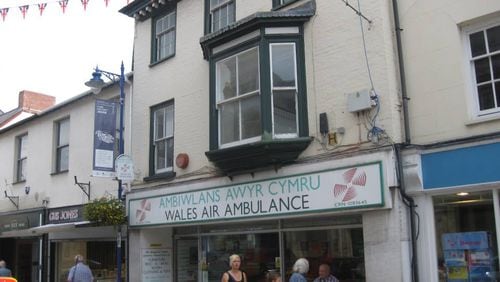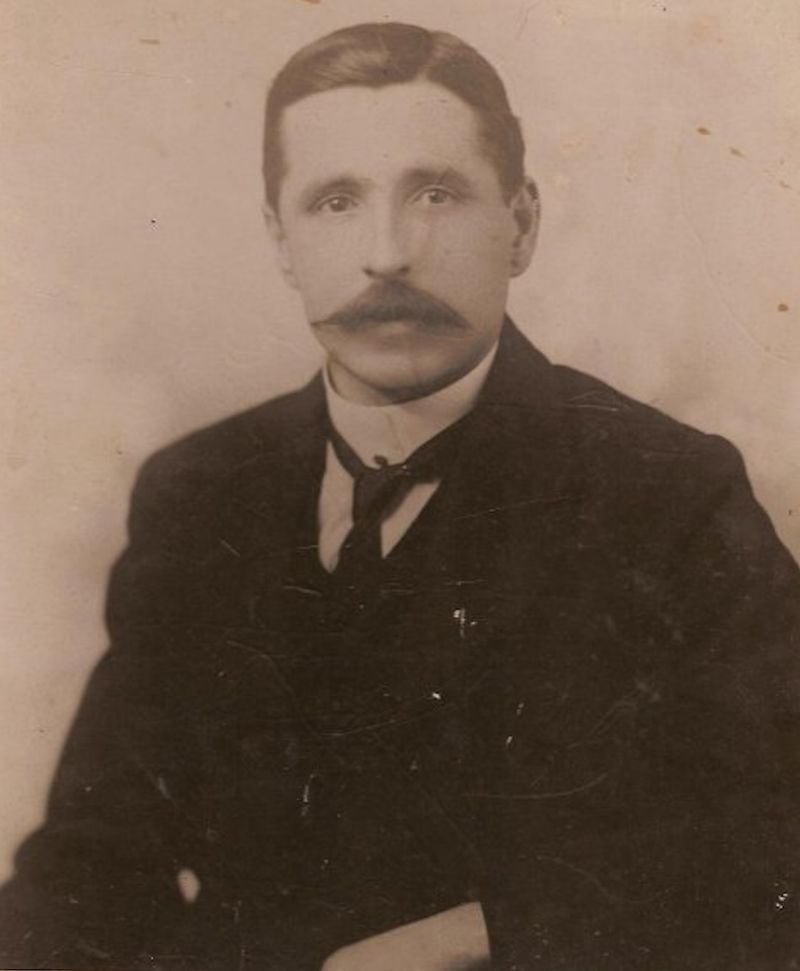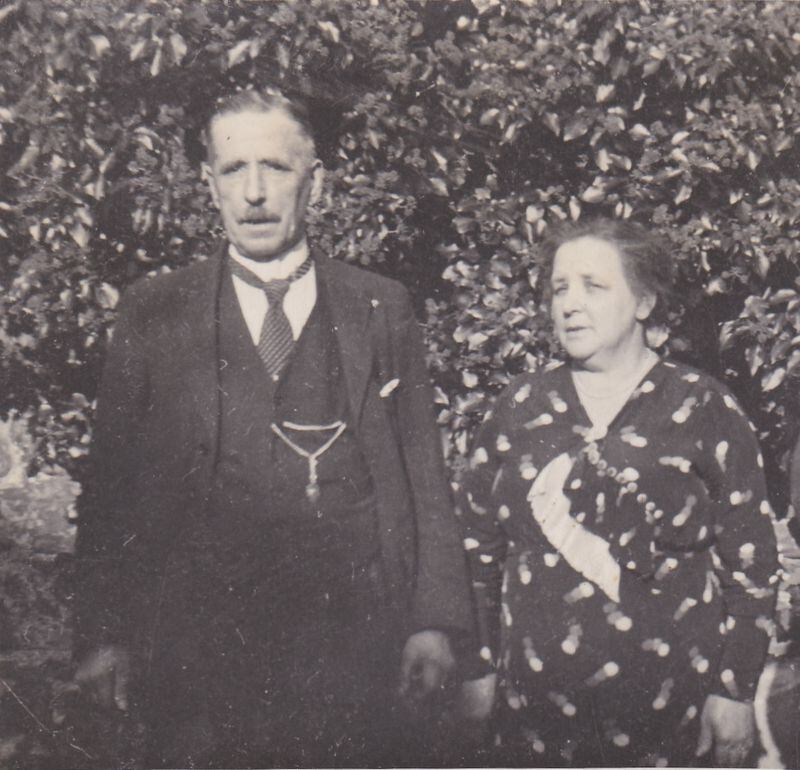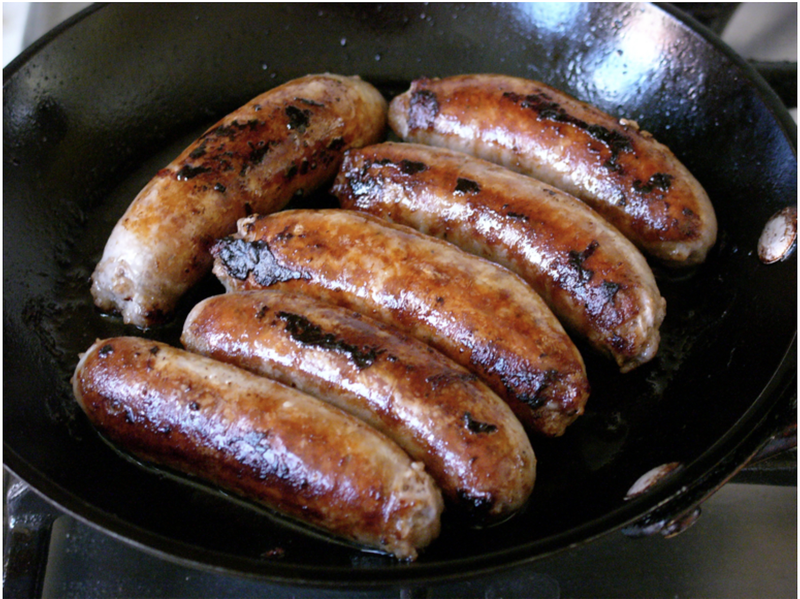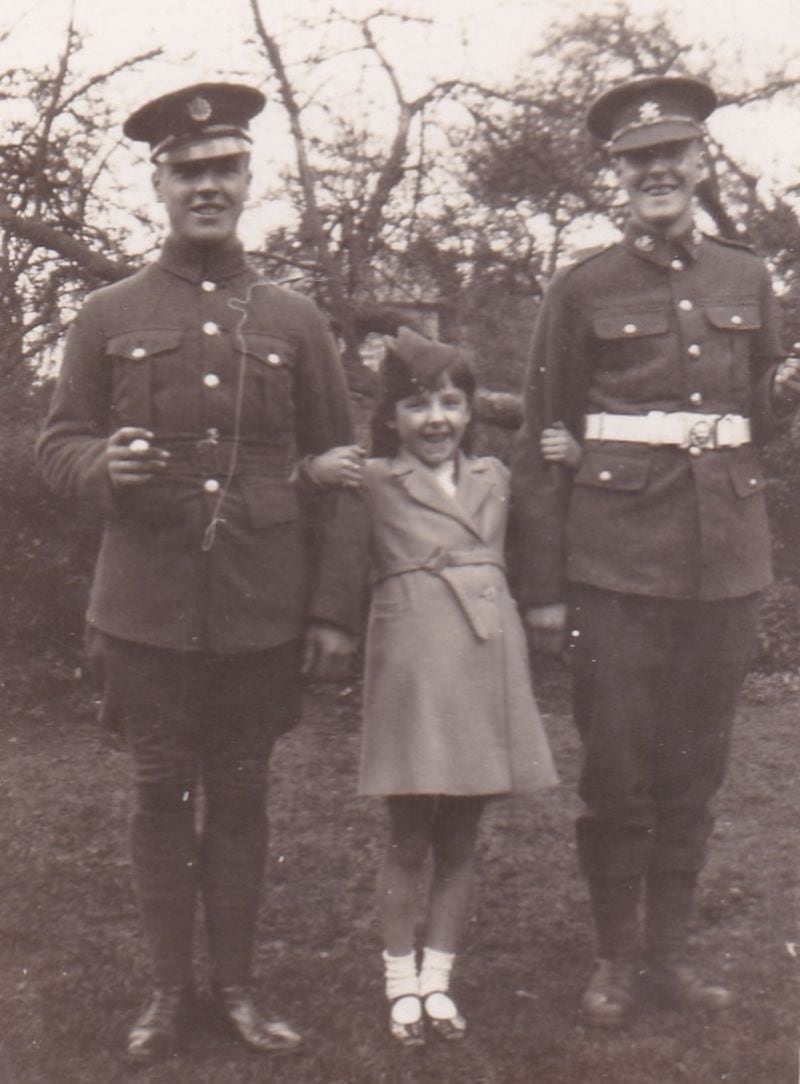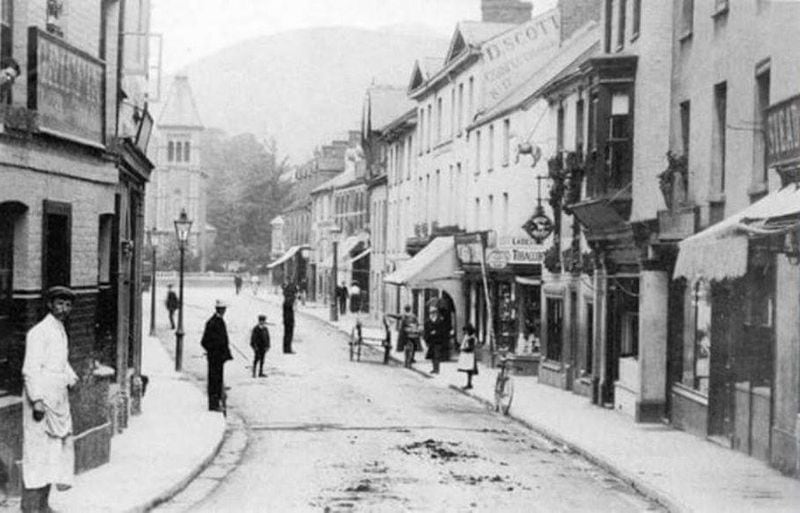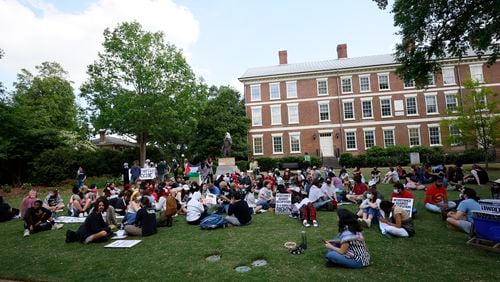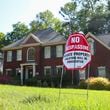It never was in the cards for me to become a vegetarian. You see, I’m the grandson of a butcher.
I grew up in a family whose favorite meal was roast beef and Yorkshire pudding, and even though I never met my maternal grandfather, who died when my mother was 15, I heard so much about him that I feel like I did.
Edgar Parry managed a shop called Denner’s in the market town of Abergavenny, Wales. The shop was owned by one of his cousins, my mother said, but Grandpa was responsible for hiring the staff, buying the livestock and supervising the abattoir.
Credit: Bill King
Credit: Bill King
My mother, Mollie, was the youngest of nine children. Her eldest brother also became a butcher, though he did not work for his father. But one of the butchers who trained under Grandpa ended up marrying one of Mom’s sisters, Betty, and becoming my Uncle Don.
My cousin Stu Jordan remembers his father met my aunt “when she would arrive at the slaughterhouse each Monday with her father’s lunch. Not the most romantic of rendezvous, I admit, but there we are.”
The animals were slaughtered on Mondays, providing the meat that was sold in the shop the rest of the week.
Grandpa had grown up in a Welsh farming family and trained as a butcher in the English Midlands, where he met Elizabeth Stonehouse, his future wife. He was known for being able to look at an animal and figure its “dressed out” weight to the nearest pound. Some of his friends and fellow butchers would bet on him, and they never lost when they did.
Credit: Parry family
Credit: Parry family
His shop was the priciest in town, my mother recalled in her journal, and “his apprentices all learned that he wouldn’t tolerate sloppiness.” His highly skilled butchers were told never to work in the shop in aprons that were the least bit soiled.
The first thing every morning, Grandpa had the errand boy scrub the steps, clean the windows, polish the brass, sweep the sidewalk and, if necessary, hose it down. “Our family doctor joked that Daddy’s shop was more hygienic than the hospital’s operating room,” Mom said.
Grandpa was known for the wonderful sausages made fresh at the shop, and only he knew the secret of the seasoning. He was offered quite a lot of money for the recipe by a well-known British meat company called Wall’s, but he refused on the grounds that a big brand like that never would make the sausages with the top-grade meat that he insisted on. Grandpa was a very proud man who didn’t want his good name discredited within the meat industry by an inferior product.
My brothers and I grew up on family tales of Grandpa and the butcher shop. One of my favorites involved the family’s dog, a police-trained Alsatian named Jack. Mom said Grandpa would tie a packet of meat for the family around Jack’s neck at the shop, and the dog would deliver it to my grandmother!
Credit: Handout
Credit: Handout
Naturally, a butcher’s family always had a wide variety of meats for their meals. While Gran had a pantry for milk, butter and eggs, and she stored potatoes, rutabagas and apples in another room that was kept cool, fresh meat and vegetables were delivered daily.
On Sundays, the one day of the week that Grandpa could linger at the table, because the shop was closed, my mother remembered having large breakfasts, featuring home-cured bacon and ham, grilled kidneys, sweetbreads and sometimes smoked haddock. Plus, there was fried bread (a British favorite), toast, scones and porridge, for those who liked it.
Sunday dinner would be roast beef and Yorkshire pudding or perhaps roast crown of pork with stuffing or — Mom’s favorite — young Welsh lamb with mint sauce.
One of the ironies of this story is that, while I love a good roast, like all my family, I loathe organ meats, such as liver.
Mom loved liver, but she gave up trying to force me to eat it after one dinnertime when she told me I couldn’t leave the table until I took a bite of it. An hour later, with me staring defiantly at the plate, she finally relented.
Credit: Parry family
Credit: Parry family
In the mid-1930s, Grandpa became ill and so, to make it easier for him to oversee the business, the family moved into the two-story apartment above the butcher shop. The building is thought to date back to the 17th century. Mom recalled it had high ceilings, ornate molding and beautiful fireplaces (even in the bathroom). She loved living there and was especially fond of the large front room that she called the “ballroom,” which had a fireplace at each end and a big bay window overlooking Frogmore Street, one of the town’s main commercial thoroughfares.
The family lived there until Grandpa’s illness finally forced him to retire from running the shop. He died in 1941 at age 62. A couple of years after that, his youngest daughter fell in love with an American soldier stationed in town. They married, and after the war, she joined him in Georgia.
Credit: Abergavenny Then and Now
Credit: Abergavenny Then and Now
However, the building with the distinctive bay window is still there and is on the U.K.’s National Heritage List. A few years back, when we were visiting family in Wales, the people running a charity shop that now occupies the ground floor of that building allowed my wife and me to take Mom upstairs, to see where she once had lived.
The residence had been split into three unoccupied flats, but my mother’s stories of the place were so vivid that we still could envision it in the days when it was a family home full of love and laughter — and with a bustling butcher shop down below.
Check out more stories of Edgar Parry’s shop at billkingquickcuts.wordpress.com. Bill King can be reached at junkyardblawg@gmail.com.
Sign up for the AJC Food and Dining Newsletter
Read more stories like this by liking Atlanta Restaurant Scene on Facebook, following @ATLDiningNews on Twitter and @ajcdining on Instagram.
